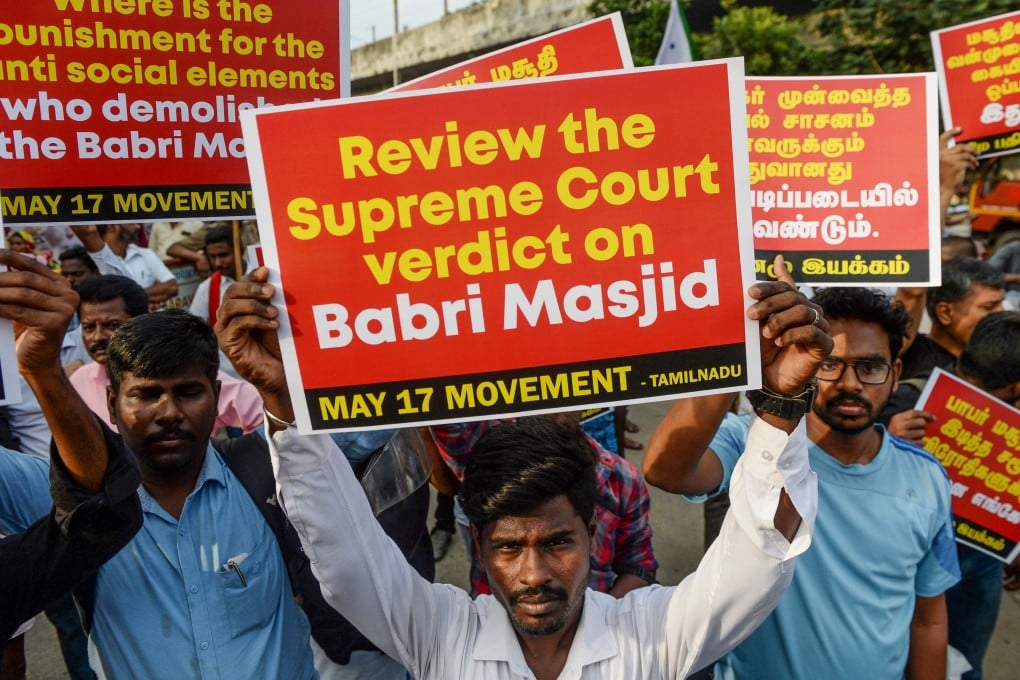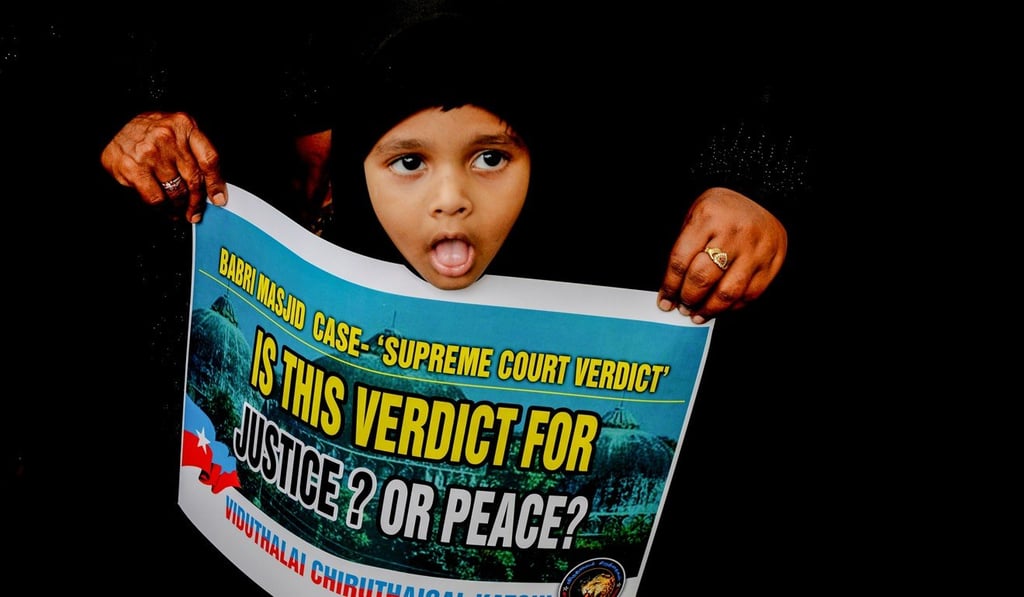Advertisement
Ayodhya aftermath: India’s Muslims split after top court’s ruling on disputed temple site
- In 1992, Hindu nationalists tore down 16th-century mosque, unleashing violence that left 2,000 dead. Now Hindus’ right to the site has been upheld
- Ruling was a major victory for Narendra Modi’s Hindu nationalist BJP, which has been promising such an outcome as part of election strategy for decades
Reading Time:4 minutes
Why you can trust SCMP

India’s largest Muslim political groups are divided over how to respond to a Supreme Court ruling that favours Hindus’ right to a disputed site 27 years after Hindu nationalist mobs tore down a 16th-century mosque, an event that unleashed torrents of religiously motivated violence.
Advertisement
The sharp split illustrates growing unease among India’s Muslims, who are struggling to find a political voice as Prime Minister Narendra Modi’s government gives overt support to once taboo Hindu nationalist causes.
“We are pushed against the wall,” said Irfan Aziz, a political science student at Jamia Millia Islamia university in New Delhi. “No one speaks about us, not even our own.”
The dispute over the site of the Babri Masjid mosque in the town of Ayodhya in Uttar Pradesh state has lasted centuries. Hindus believe Lord Ram, the warrior god, was born at the site and that Mughal Muslim invaders built a mosque on top of a temple there. The December 1992 riot – supported by Modi’s Hindu nationalist Bharatiya Janata Party (BJP) – sparked massive communal violence in which some 2,000 people were killed, mostly Muslims.
The 1992 riot also set in motion events that redefined the politics of social identity in India. It catapulted the BJP from two parliamentary seats in the 1980s to its current political dominance.
Modi’s party won an outright majority in India’s lower house in 2014, the biggest win for a single party in 30 years. The BJP won even more seats in elections last May.
Advertisement


Advertisement